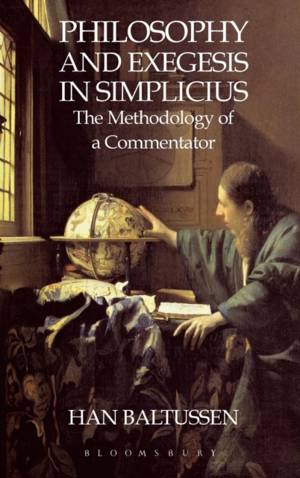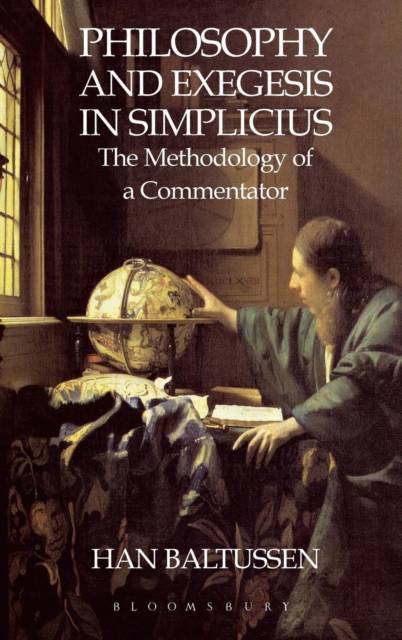
Bedankt voor het vertrouwen het afgelopen jaar! Om jou te bedanken bieden we GRATIS verzending (in België) aan op alles gedurende de hele maand januari.
- Afhalen na 1 uur in een winkel met voorraad
- In januari gratis thuislevering in België
- Ruim aanbod met 7 miljoen producten
Bedankt voor het vertrouwen het afgelopen jaar! Om jou te bedanken bieden we GRATIS verzending (in België) aan op alles gedurende de hele maand januari.
- Afhalen na 1 uur in een winkel met voorraad
- In januari gratis thuislevering in België
- Ruim aanbod met 7 miljoen producten
Zoeken
Philosophy and Exegesis in Simplicius
The Methodology of a Commentator
Han Baltussen
Hardcover | Engels
€ 339,45
+ 678 punten
Omschrijving
This is the first book-length study in English of the interpretative and philosophical approach of the commentaries of Simplicius of Cilicia (c. AD 530). Simplicius' work, marked by doctrinal complexity and scholarship, is unusually self-conscious, learned and rich in its sources, and he is therefore one of those rare authors who is of interest to ancient philosophers, historians and classicists alike. Here, Han Baltussen argues that our understanding of Simplicius' methodology will be greatly enhanced if we study how his scholarly approach impacts on his philosophical exegesis. His commentaries are placed in their intellectual context and several case studies shed light on his critical treatment of earlier philosophers and his often polemical use of previous commentaries. "Philosophy and Exegesis in Simplicius" not only clarifies the objectives, pre-suppositions and impact of Simplicius' work, but also illustrates how, as a competent philosopher explicating Aristotelian and Platonic ideas, he continues and develops a method that pursues philosophy by way of exegetical engagement with earlier thinkers and commentators. The investigation opens up connections with broader issues, such as the reception of Presocratic philosophy within the commentary tradition, the nature and purpose of his commentaries, and the demise of pagan philosophy.
Specificaties
Betrokkenen
- Auteur(s):
- Uitgeverij:
Inhoud
- Aantal bladzijden:
- 224
- Taal:
- Engels
Eigenschappen
- Productcode (EAN):
- 9780715635001
- Verschijningsdatum:
- 14/08/2008
- Uitvoering:
- Hardcover
- Formaat:
- Genaaid
- Afmetingen:
- 163 mm x 236 mm
- Gewicht:
- 612 g

Alleen bij Standaard Boekhandel
+ 678 punten op je klantenkaart van Standaard Boekhandel
Beoordelingen
We publiceren alleen reviews die voldoen aan de voorwaarden voor reviews. Bekijk onze voorwaarden voor reviews.









